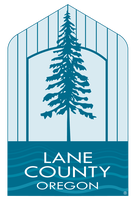
Community members whose properties were affected by the Holiday Farm Fire are urged to approach with caution when returning to their homes.
Safety experts recommended that residents do not disturb ash or debris on their properties until after they have been assessed by hazardous materials response professionals. The ash and partially burned debris may contain asbestos, mercury, lead, cadmium, chromium and a variety of other dangerous chemicals that can be harmful to residents’ physical health when inhaled.
Property owners should first contact their insurance company before returning to their home to find out what documentation is needed to file a claim, and then develop a plan before returning to the burned area using the following safety precautions:
- Be aware of all electrical hazards, including downed power lines, unstable surfaces and sharp objects buried in the ash. Use extreme caution when near debris.
- Wear sturdy footwear, eye goggles and heavy duty work gloves. If possible, wear disposable coveralls and change into a clean set of clothes after working in debris and ash.
- Cloth face coverings, paper masks and bandanas are not very effective at filtering out fine airborne ash, dust or asbestos fibers. Properly fitted N95 or KN95 respirators can offer some protection from airborne particles. For more information from the Centers for Disease Control and Prevention (CDC) and U.S. Environmental Protection Agency (EPA) on protecting your lungs from wildfire smoke and ash, visit https://www3.epa.gov/airnow/smoke_fires/respiratory-protection-508.pdf.
- Ash must be adequately wetted to control dust that can become airborne. Before cleaning up ash and other debris, get the material tested to determine if it contains asbestos. If it does, hire a licensed asbestos abatement contractor. To learn more and for a list of licensed contractors throughout Oregon, visit ordeq.org/asbestos.
- If possible, clean recyclable materials such as metals and concrete with water prior to transport to reduce the spread of asbestos or other contaminants in the ash.
- Wash any recovered personal items with water or wipe them down with a damp cloth to remove potentially toxic dust.
- Take care before handling paints, bleaches, oils or other household hazardous wastes that may be partially burned, as these chemicals may be dangerous to handle.
- Call your local garbage hauler or transfer station with questions about waste disposal.
- Work during daylight hours, as your property may contain new hazards that are difficult to see at night. Be sure to look for hidden hazards such as sharp objects or holes under the ash or debris. If your property has a septic system, be careful to avoid stepping on or near the tank until you are sure the tank lid is still there.
- Be aware of ongoing hazards from falling trees and rocks, landslides and sinkholes, as well as the risk of fire continuing to smolder inside stumps and underground roots for months to come.
Children should NOT be involved in clean-up activities. Do not allow children near the debris or in an area where they might breathe airborne particles left from the fire. Smoke and debris can also be unsafe for pregnant women, older adults, people with heart or lung issues or who have had a stroke, as well as older pets and animals with heart or lung disease. It’s recommended that those belonging to one of these sensitive groups limit time in the fire-affected areas.
In addition to handling debris with caution after it’s been tested for asbestos, it’s imperative for community members to thoroughly inspect their property’s utilities before resuming use.
Community members with private wells should first visually inspect enclosures, power supply, controls, water treatment equipment, pressure and holding tanks, pipes and other infrastructure. If damage is obvious, have a licensed contractor assess the damage and make repairs. Next, check household fixtures and plumbing and test faucets for water flow. Sputtering or other presence of air in the line can indicate a loss of system pressure that could have allowed bacteria contamination.
Water should be tested before consumption post-fire. While waiting for water quality test results, water can be used for bathing and flushing toilets, but clean water from another source should be used for drinking and cooking.
For more information from the Oregon Department of Environmental Quality (DEQ) on the responsibilities of homeowners for maintaining private wells to ensure water is safe to drink, visit https://www.oregon.gov/deq/wq/programs/Pages/DWP-Private-Well-Owners.aspx.
Property owners on a septic system should check the area around the system for damage, as well. Though typically several feet underground, septic systems can be damaged by firefighting activity and affected by smoldering fires that stay hot in the root systems of trees. If sewage is visibly exposed or at the surface, secure the area from access, especially by children or pets. For more information and to schedule an inspection with Lane County for assistance assessing septic systems, visit lanecounty.org/wastewater.
Ash, surface debris, fire suppression chemicals, sediment and other contaminants also often settle on and run into surface water sources like streams, ponds or drainages (including rain barrels), so residents should examine systems that utilize these sources for damage, clogs or other forms of contamination. Alternative water sources for livestock should be used until the quality of these water sources can be assured.
Protecting your mental and emotional wellbeing is just as important as caring for your physical health after being affected by a wildfire. Sadness, anger, guilt and numbness are all normal reactions to stress. Talk to a psychologist, social worker or professional counselor if you need help coping. An emotional support line is available at 1(800)923-HELP (4357). A disaster stress helpline can be reached at 1(800)985-5990 or by texting TalkWithUs to 66746.
For more safety tips and resources to help those affected by the Holiday Farm Fire, visit lanecounty.org/mckenziefire_resources.
###